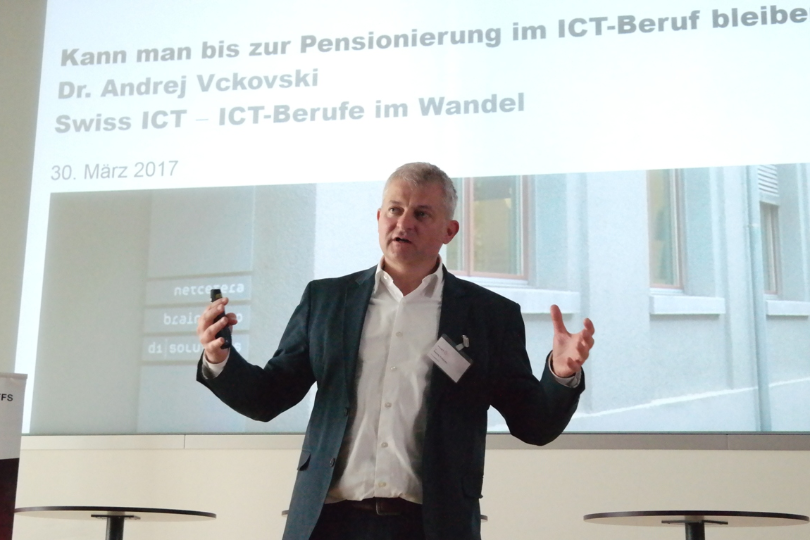In his talk at an event held by swissICT on 30 March 2017, Andrej Vckovski, our CEO, raised the question of whether it is possible for ICT professionals to pursue their careers until retirement age.
(Source: Netzwoche)
Unlike the Swiss average the survey conducted by the regional employment centres (RAV) in 2013 showed that the rate of unemployed ICT professionals increases significantly after the age of 50. To Andrej Vckovski, however, this does not provide sufficient evidence that older ICT professionals have been discriminated against. While acknowledging that old age unemployment tends to be a problem, he cautioned that he had been unable to detect signs of "deliberate age discrimination".
Task falls on both employers and employees
Doubtless it would be better to keep older ICT professionals working for as long as possible, Andrej Vckovski continued. That would be an important contribution towards combating the skilled labor shortage. Most of all, biases towards older employees would have to be addressed. Opinions claiming that they are expensive, difficult to manage or inflexible are widely held, he added. On the plus side, those deficiencies are offset by their experience, established industry networks and higher resilience and loyalty.
At the end of his talk, Andrej Vckovski revealed that his magic formula is “continuing education” which requires further training on the job, off the job through external providers along with a willingness to "de-specialize". With regard to the third item, both employees and employers were advised to avoid the creation of knowledge silos. They would harm both parties in the long term. Employers risk becoming dependent on individual experts and employees risk missing the boat when their areas of specialization are no longer in demand.
